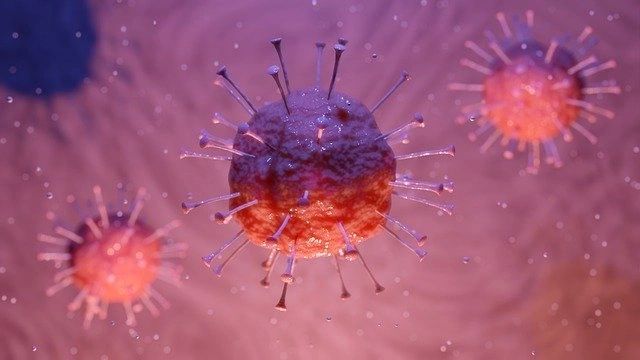
COVID-19 Related Hearing Loss?
An overlooked but possible COVID-19 complication
It is well-known that many viruses are capable of causing hearing damage and hearing loss. The list of culprits, includes viruses that cause measles, mumps, rubella, the CMV virus (CytoMegaloVirus) as well as viruses in the Herpes family. However, as reports of ear and hearing problems are published, the COVID-19 virus might have to be added to the list.
By now, the relationship between COVID-19 and ear and hearing damage is attracting the attention of researchers worldwide. A survey in the United Kingdom, for example, found that more than 10 % of the 121 adult participants reported worsening hearing and/or tinnitus during interviews some 8 weeks after being discharged from the hospital for COVID-19 treatment.
As more is learned about the novel Coronavirus, its effect on ears and hearing is yet another mystery to be unraveled.
Why hearing loss?
How viruses cause damage throughout the hearing system is for the most part not well understood. The body’s immune response to a virus often plays a part by either overreacting or underreacting to a viral presence.
Damage can be due to a direct attack on a nerve. Might this be how the COVID-19 virus causes loss of smell and taste as it is inhaled via nose and mouth? So far, it is not known whether the novel Coronavirus might target the ear itself or the nerve and nervous pathways involved with hearing.
Tinnitus, the infamous noise perceived in the ear, is usually recognized as a symptom of hearing damage or already hearing loss. So, could tinnitus be an early warning sign in this case? Also, tinnitus is made a lot worse by stress and anxiety, which are common in those dealing with COVID-19 infection and treatments.
Other possible factors to be considered
Obviously, a lot more data has to be collected. Besides the possibility of a direct viral assault, could hearing loss be a reaction to virus-triggered damage throughout the body or might it be a consequence of medication reactions?
· COVID-19 ravages the breathing system. People’s blood oxygen levels plummet, leading to what is called hypoxia. However, the hearing cells in the inner ear depend on healthy oxygen levels for survival and function. Might COVID-19-related hearing issues be the result of inner-ear oxygen starvation?
That said, low oxygen levels also interfere with proper nerve and brain function, which can further hinder the conduction and decoding of sound signals.
· The COVID-19 virus is mostly known for causing serious breathing symptoms. However, effects are also seen throughout other body systems, which can include the brain. MRIs have shown evidence of brain inflammation in some COVID-19 patients. Hearing loss is a well-known potential consequence of brain inflammation, such as meningitis and encephalitis.
It is now said that the hearing status of COVID-19 patients should be evaluated and monitored, especially if they have symptoms hinting at brain and/or nerve involvement, such as confusion, agitation, decreased responsiveness, tingling, loss of smell etc.
· How about ototoxicity or hearing damage from drug treatments? This is another possible risk factor to be added to the list.
Without existing treatment protocols for this unknown virus, many medications, both new and old, have been used alone and in combinations while trying desperately to save lives. Of course, all of these agents have their side effect profiles with some listing possible hearing-related problems.
Among other factors, ototoxic reactions depend on the dose, the length of treatment and even on genetic predispositions. And so, the ototoxicity issue is yet another conundrum for doctors and patients to consider and for researchers to investigate.
In the end, COVID-19 related hearing loss and tinnitus problems may well be due to the interaction of many factors, both known and still unknown.
Prevention: Now More than Ever!. Better Safe than Sorry!
All things considered, COVID-19 is definitely one of the infections that people should avoid. Those precautions that are known for keeping us reasonably safe from viral invasion might also save our hearing. For now at least, prevention is the way to go!
· Wash hands frequently. Don’t skimp on soap. Use and always carry anti-viral hand sanitizer. Read the ingredients and indication details.
· When in public places, do wear a face mask that covers both nose and mouth for protecting oneself as well as others.
· Social distance by at least 6 feet.
Combining all of the above precautions is so far the best known way for escaping the potentially deadly clutches of an unfamiliar virus that refuses to give up its secrets any time soon.
****
References to learn more:
https://www.tandfonline.com/doi/full/10.1080/14992027.2020.1798519
https://www.mayoclinicproceedings.org/article/S0025-6196(20)30596-6/fulltext
*****
Meet me online:
Guess what! I do ZOOM presentations! Nice way to talk to people across the nation.
Email: [email protected]
Visit my website hearing-loss-talk.com
Join me on Facebook: https://www.facebook.com/whatdidyousaybook/
I even Tweet: @WhatDidYouSay88